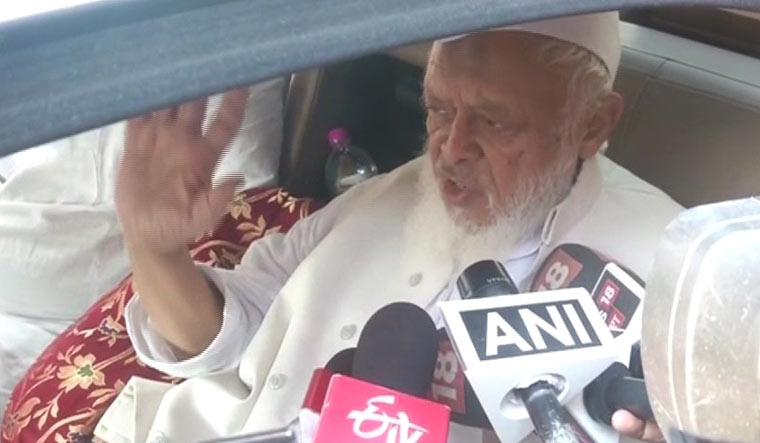The All India Muslim Personal Law Board (AIMPLB) decided on Sunday that it would file a petition seeking review of the Supreme Court's judgment in the Ayodhya issue.
"The land of the mosque belongs to Allah and under Sharia law, it cannot be given to anybody," AIMPLB secretary Zafaryab Jilani told reporters after the meeting of the board in Lucknow.
"The board has also categorically refused to take five-acre land in Ayodhya in lieu of the mosque. The board is of the view that there cannot be any alternative to the mosque," he said.
also read
- Ayodhya Pran Pratishtha: 15 Indian sporting icons invited for Ram Temple consecration on Jan 22
- Ayodhya: 100 chartered flights expected on Jan 22; 10,715 AI cameras to keep watch on city
- ‘A judgement of court’: CJI Chandrachud on why Ayodhya verdict was kept anonymous
- PM Modi reaches Ayodhya, conducts roadshow
Earlier in the day, the Jamiat Ulema-e-Hind also decided to file a review petition challenging the Supreme Court's Ayodhya verdict.
Jamiat chief Maulana Arshad Madani said they took the decision following extensive deliberations involving lawyers and experts.
"Despite the fact that we already know that our review petition will be dismissed 100 per cent, we must file a review petition. It is our right," Madani said after a meeting of the AIMPLB.
The expert panel observed that the judgment was against the Muslim parties and it was not a final judgment as the option of reviewing it is available under the Constitution of India, the Jamiat said.
Hours after the Supreme Court verdict on Ayodhya dispute on November 9, Jilani, the lawyer to the litigant Sunni Waqf Board, had said they respected the verdict, but would seek a review. "We respect the verdict, but the judgment is not satisfactory. There should be no demonstration of any kind anywhere on it.
"We will file a review petition if our committee agrees on it. It is our right and it is in Supreme Court's rules as well," he had said.
The Supreme Court had, in a historic verdict, backed the construction of a Ram temple by a trust at the disputed site in Ayodhya. The five-judge Constitution bench also directed the Centre to allot a five-acre plot to the Sunni Waqf Board in Ayodhya to build a mosque.


